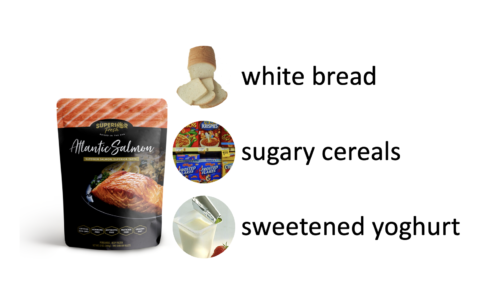The federal agency that ensures the safety of the food supply in the United States plans to update its definition of “healthy” in the context of packaged-food labels, paving the way for salmon and other nutrient dense foods to qualify for the “healthy” claim.
Under the definition set in 1994 by the Food and Drug Administration, salmon does not qualify for the claim because it has high levels of fat, while cereal qualifies because it has vitamin A, vitamin C, calcium, iron, protein and fibre, even though it is loaded with sugar.

But not anymore, if the proposal is approved.
FDA is making the change to align the term with current nutrition science and federal dietary guidance.
“The FDA’s proposed framework for the updated definition of ‘healthy’ focuses on ensuring that nutrient-dense foods that help consumers to build a diet consistent with current dietary recommendations can qualify to bear the claim,” said the agency.
It said the “healthy” claim on the label – for packaged food that qualify – is voluntary.
The FDA has begun to conduct research on a symbol that industry can voluntarily use to label food products that meet the proposed new definition.









